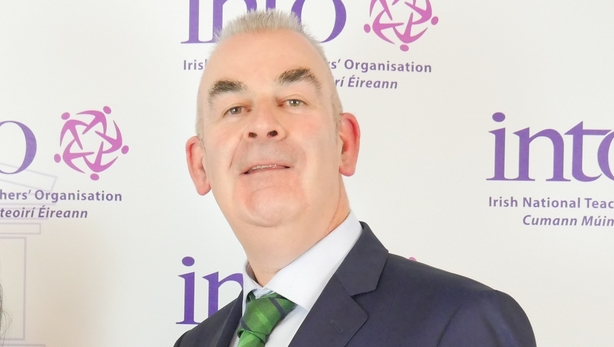INTO critical of change to criteria for teaching supports

Primary school teachers have strongly criticised a Department of Education decision to stop using data on the number of pupils with complex needs as a criteria in deciding the level of additional teaching support a school is entitled to.
The change was brought in in February and has faced considerable opposition from disability organisations, as well as school principals.
At their annual congress in Derry, INTO delegates instructed their union to begin negotiations to restore complex needs as a criteria for the allocation of resources.
The INTO was one of a number of education bodies that was consulted prior to the change, but yesterday INTO General Secretary John Boyle told Minister for Education Norma Foley the union’s key recommendation that children with acute needs who are clearly identifiable within schools, had to be ringfenced, “was not heeded properly”.
Until now, data from the HSE was used to identify children in schools with complex needs and additional teacher hours were allocated taking their presence into account.
But the Department says it has removed this criteria because the data being collected by the HSE is incomplete and patchy, and so some children with complex needs are going under the radar.
It is now giving additional weighting to the outcomes of standardised tests to compensate for the removal of the special needs criteria.

This HSE shortfall in information of children with complex needs is due to severe staff shortages, which means many children cannot get access to therapists and psychologists in order to be assessed in the first place.
Primary school teachers backed a motion calling on their union to lobby for a review of current funding models “to ensure funding is adequate to meet the needs of all children admitted to schools, particularly those with complex needs”.
INTO General Secretary John Boyle said the underfunding of Special Education “should be a national shame and it shouldn’t be up to teachers, parents, and pupils to remind this government of their moral duty towards some of society’s most vulnerable and undervalued individuals”.
Separately, INTO delegates have mandated their union to work with other trade unions for initiatives that support teachers facing housing affordability challenges, particularly in areas with high rent pressure, including the exploration of an urban allowance, and allowances for teachers who work in special education or in DEIS schools.
The urban allowance would be similar to the UK’s London weighting allowance.
However, the union has not specified which urban areas they would wish any such allowance to be linked to.





